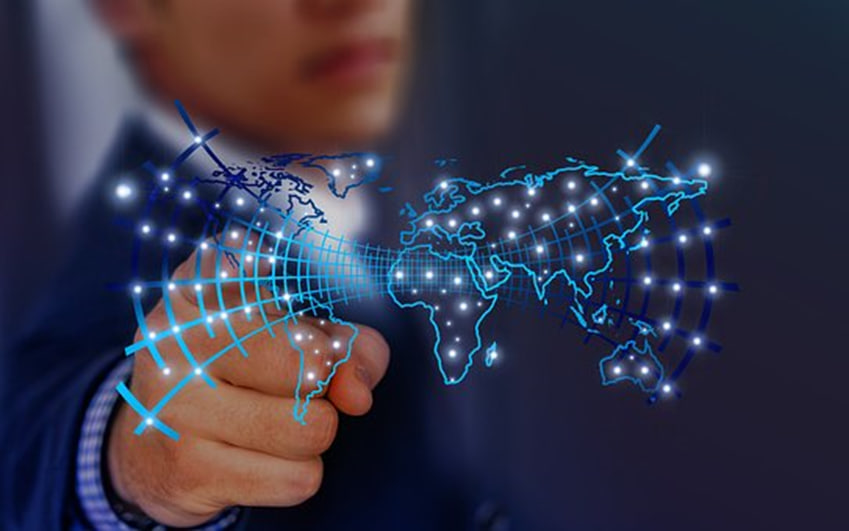
- March 22, 2022
- allix
- Research
Like every year, Challenges invited 7 young start-ups selected upstream in the issue “100 start-ups where to invest” to come and sell their project. “A good pitch is a story that touches us, that makes you want”, advises Céline Lazorthes, founder of Leetchi and figure of entrepreneurship in France. The jury, composed of Olivier Garnier, founder of Bryan Garnier, specialized in tech, Guillaume Vitrich, White&case lawyer and Agathe Vautier, founder of The Galion Project, engaged in a thorny exercise: that of noting projects and designating the most promising young shoots.
Cibiltech predicts transplant rejection
First place went to Cibiltech, the start-up that predicts transplant rejection. When a patient on dialysis receives a kidney transplant, “it’s an extraordinary day for him explains Stéphane Tholander, president of Cibiltech. He can return to work, and his life expectancy increases”. Except that 10 years later, half of the transplant patients are rejected. To remedy this, the company has developed an algorithm to predict transplant rejection at 3, 5 or 10 years from the analysis of clinical and biological monitoring parameters.
Enough to allow doctors to adapt the care of patients, and treatments, and to extend the life expectancy of patients, according to Stéphane Tholander. “The software is used by large pharmaceutical companies who have been sold its use to develop new drugs”, specifies the founder. The start-up also works with more than a hundred hospitals in the United States and in ten European countries. The algorithm is now being developed for kidney transplants, but should eventually be applied for heart and lung transplants. Grown from 4 to 30 employees in less than three years, with a turnover of 3.5 million in 2021, the start-up has so far been financed with equity. Its fundraising will make it possible to initiate its deployment and the conduct of its clinical trials in ten European countries, to request eligibility for reimbursement by health insurance systems.
Interstellar Lab makes life more sustainable on Earth and in space
Interstellar Lab, which develops and builds controlled-environment modules to make life possible on Earth and in space, takes second place. Launched in 2018, the start-up designs structures that recreate ideal climatic conditions to allow life to develop. The greenhouses developed by the company allow optimized soilless cultivation. “We grow plants that are disappearing today, for example,” rejoices Barbara Belvisi, president of Interstellar Lab. The start-up has developed prototypes thanks to two contracts with NASA and CNES, which are working on a lunar program. On Earth, greenhouses operate without human intervention. In space, they last at least a month. The founder, who surrounded herself with architects, engineers, and developers, explains that she received 62 orders for terrestrial domes at 200,000 euros each. The capital sought must be used to build large-scale prototypes and industrialize the project.

Tripartite, is a secure platform dedicated to purchases between individuals
How to support marketplaces, e-merchants, and distributors in their second-hand activity to avoid scams? The Tripartite start-up, which was named the third most promising start-up by the jury, has developed a solution to secure the second-hand market. “This market represents 7 billion euros per year in France, underlines Christophe Boucrot, co-founder and former developer at Bull. Everyone must be able to buy second-hand with peace of mind”. Via a SaaS (software as a service) solution, the start-up relies on artificial intelligence to secure transactions: payment reliability via a secure payment button, parcel tracking, verification of user-profiles and resolution of disputes. It also allows individuals to sell items to each other, by generating a secure payment link. Among its fifty clients, Tripartite already works with Anibis, the Swiss “Bon coin”, the coliving platform Colivme, Camif, or the “vinted” of New Caledonia, Le Trico. Its model is based on monthly fees starting at 350 euros for the smallest customers, and a commission of 2% per transaction.
Omie et Cie, the committed food brand
Omie & Cie is a committed food brand that only offers quality products that respect the environment, producers and your health. “Food is 25% of our carbon footprint and what matters most is the agricultural upstream, i.e. what grows and how it is grown”, explains Christian Jorge, one former co-founder of Vestiaire Collective and co-president of Omie&Cie. The revolution? “Making products with ingredients that regenerate the soil,” agrees Coline Burland, co-founder of the company. The start-up thus manufactures products using ingredients from regenerative agriculture that are good for the planet. It entrusts the realization of the products to 150 producers and manufacturers then sells the products directly, online, to consumers. On the site, there are 250 tasty references ranging from oil pasta to cookies. The delivery is made in Paris and its first crown by bike, and by the end of the year, in Lyon as well. In one year, the company labeled BCorp has already generated 500,000 euros in turnover from 5,000 households.
MagrEEsource, to recycle magnets for the industry made in Europe
MagrREEsource wants to relocate the production of magnets to Europe in the short term by recycling them, thanks to a breakthrough technology from the Neel Institute in Grenoble. MagREEsource recovers used magnets used in industry, for example in wind turbines, and smashes them with hydrogen to separate rare earths from less noble materials. The goal is to recompose the magnets and remagnetize them so that they are operational in the industry. “Magnets are at the heart of the energy transition”, explains Erick Petit, from the industrial world. Created in 2020, MagREEsource forecasts a turnover of 140,000 euros in 2022, 125 million in 2030. The start-up raises today 3 million euros to launch industrialization and buy the machines.
Hypnoledge, learning foreign languages through hypnosis
Hypnoledge is a “full digital” solution for learning foreign languages where hypnosis is used to guide the learner towards an optimized state of consciousness. The start-up offers foreign language courses at a distance with a method of immersion under hypnosis. It acts on the cognitive dimensions (concentration, attention, memorization), psychological and emotional (release of blockages, confidence, desire to express oneself), and neurological (integration of language automatisms without going through translation into the mother tongue). The learner is immersed in a state of maximum concentration, which optimizes the level of learning performance, explains Gershon Pinon, co-founder of the start-up. “We help the user to work on his unconscious blockages”, adds the mental trainer for top-level athletes. A session lasts an average of 30 minutes and has four phases: hypnosis, active listening, word repetition, and awakening. The application charges 19.90 euros per month for individuals and claims 120,000 users.
Forssea Robotics: robots for wind farm maintenance
Forssea Robotics specializes in the manufacture of intelligent underwater systems for offshore industries (Marine Energy, Defence, Oil & Gas, Science). The start-up designs miniature robots capable of finding their own way and performing maintenance tasks (electricity charging, software updates, etc.) up to 500 meters deep, to maintain offshore oil platforms, telecom cables and electric submarines, offshore wind turbines. Their machines called Argos are equipped with high-tech visual sensors and benefit from guidance algorithms, an inertial unit (no GPS at these depths), and onboard artificial intelligence, allowing long-distance piloting in hostile environments, from ground centers. The robots are placed on long-term rental from maritime service companies and the company also sells marine cameras with image processing for construction, defense, and underwater mining. “Today there are 10,000 wind turbines in the world of the sea, there will be 40,000 in 10 years, explains Gautier Dreyfus, co-founder of the start-up. We want to become the world leader in renewable energies”.
Categories
- AI Education (39)
- AI in Business (65)
- AI Projects (87)
- Research (77)
- Uncategorized (3)
Other posts
- Neck Liposuction Abroad: Say Goodbye to Double Chin, Hello to Defined Confidence
- Dental Veneers Abroad: Get Your Dream Smile for Less
- Endoscopic Brain Surgery Abroad: Safe, Affordable & Advanced Options You Can Trust
- Say Goodbye to Unwanted Moles: Discover Safe, Affordable Mole Removal Abroad
- Mastoidectomy Abroad: Affordable, Safe, and Life-Changing Ear Surgery
- Buccal Fat Extraction: Sculpt Your Dream Look with the Experts at Best Clinic Abroad
- Get Fast Relief from Spinal Fractures: Kyphoplasty Surgery Abroad with BestClinicAbroad
- Curious About Genetic Testing for Fertility? Here’s What You Need to Know (and Why People Trust Best Clinic Abroad to Book It)
- Hip Pain Ruining Your Life? Here’s Why More People Are Getting Hip Replacements Abroad with Best Clinic Abroad
- Breathe Easier: Why Best Clinic Abroad is Your Top Choice for Septoplasty
Newsletter
Get regular updates on data science, artificial intelligence, machine



